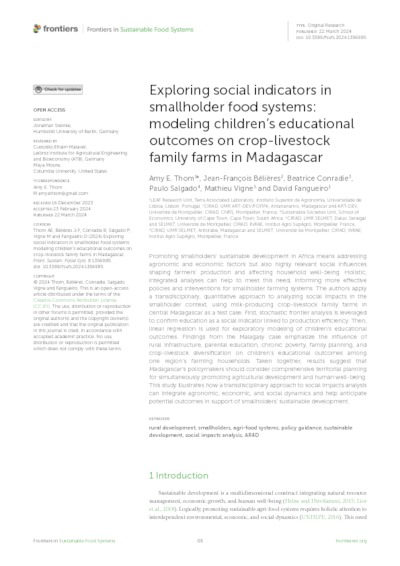Promoting smallholders’ sustainable development in Africa means addressing agronomic and economic factors but also highly relevant social influences shaping farmers’ production and affecting household well-being. Holistic, integrated analyses can help to meet this need, informing more effective policies and interventions for smallholder farming systems. The authors apply a transdisciplinary, quantitative approach to analyzing social impacts in the smallholder context, using milk-producing crop-livestock family farms in central Madagascar as a test case. First, stochastic frontier analysis is leveraged to confirm education as a social indicator linked to production efficiency. Then, linear regression is used for exploratory modeling of children’s educational outcomes. Findings from the Malagasy case emphasize the influence of rural infrastructure, parental education, chronic poverty, family planning, and crop-livestock diversification on children’s educational outcomes among one region’s farming h

